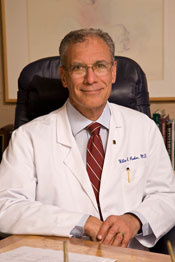Authors: Evenson M, Payne D, Nygaard I.
Source: Obstetrics and Gynecology, 2012;119:780-4
Study from: University of Utah School of Medicine
Problem: Women’s recovery and pain control during the first 6 weeks following gynecologic surgery has not been well studied.
Study: Women having either abdominal or vaginal surgery were asked to determine their pain and pain medication use after surgery.
Results: 80 women had vaginal surgery; some women had a hysterectomy and others had bladder repair surgery. 47 women had abdominal surgery; some women had a hysterectomy and others had removal of fibroids (myomectomy) or ovarian cysts.
On recovery day 3, inadequate pain control was reported by about 50% of women in both groups and at the end of one week 25% of women had inadequate pain control. By day 14, most women who had vaginal surgery had minimal pain, but 20% of women still had pain after abdominal surgery. Two weeks after discharge, narcotic pain medication was still being used by 10% of women after vaginal surgery and 32% of women after abdominal surgery. By 6 weeks, half of the women in each group felt recovered and two-thirds felt “back to normal.”
Authors’ Conclusions: Pain control after hospital discharge is inadequate for many women after both vaginal and abdominal surgery. The time to full recovery is longer than 6 weeks for half of women.
Dr. Parker’s Comments: Recovery from surgery varies from woman to woman, but it usually takes a bit longer than either the doctor or patient hopes will be the case. In the past 10 years, doctors have been better educated about helping patients manage pain, but some doctors still discourage use of pain medicines and many patients stop using pain medicine before they should. Laparoscopic surgery has been proven to cause less pain and have a faster recovery than abdominal or vaginal surgery. But, even following laparoscopic surgery, patients often try to return to normal activity faster than they should.
I always tell patients that there is no advantage to being a martyr and that they will sleep better and feel better if they take some pain medication for the first few weeks after surgery. Also, patients are not aware of the level of fatigue that they will feel after surgery. And, the fatigue can last for weeks after the pain has gone away. Fatigue is due to a number of things: the effects of anesthesia and narcotic pain medication; the stress of surgery on the body; tissue injury and release of proteins (cytokines) into the bloodstream that are sedating (nature’s way to force you to rest); and, injured tissues need for energy to heal, leaving little reserve for the rest of your body.
So, some form of pain medication allows you to rest more and sleep better. Also understand that recovery and return of energy may take longer than you wish.



